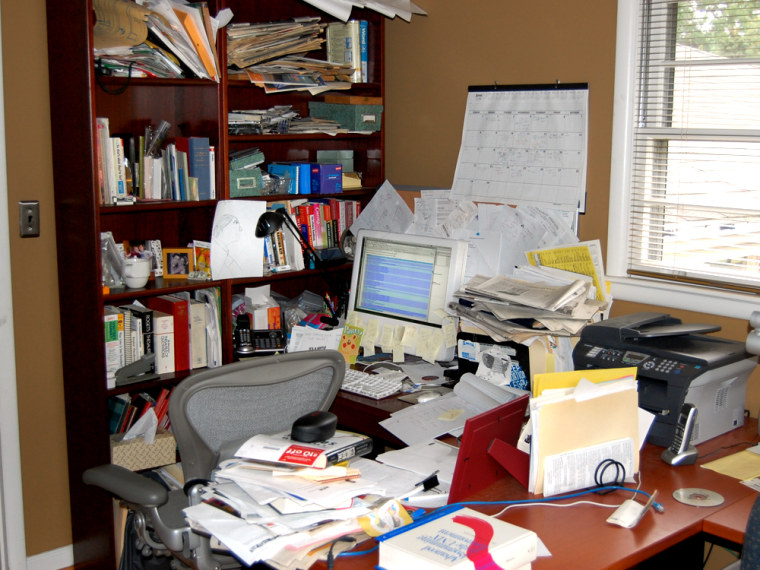Attention bosses who harass employees to clean up their cluttered cubicles: As it turns out, messy desks may lead to clearer, more organized thinking, a new study shows.
And this effect may not just be limited to the worker with the messy desk. The study results suggest that the mess-effect may impact all those sitting near the clutter, says Jia Liu, a researcher at the University of Groningen in the Netherlands.
Conventional wisdom is that a messy desk leads to a messy mind, Liu says. But sometimes the mess sparks a desire for simplicity, making people to think in a more organized fashion, she adds.
Liu and her colleagues ran a series of experiments to determine how people react to clutter, according to the report published in the Journal of Consumer Research.
In one experiment, 49 college students were asked to sit at a cluttered cubicle, a tidy cubicle, or one that was in-between.
After sitting at the desk, the volunteers were asked to rate on a scale of one to nine how well a series of statements fit them: “It upsets me to go into complicated situations,” “I would like to simplify my life as much as I can,” “I would like to keep things simple,” and “I am bothered by complicated things.”
Next the volunteers were given a test in which they needed to sort 33 products into groups – the volunteers had to come up with an organizing principle themselves.
When the results were in, it was clear that people sitting at messy desks came up with much simpler organizing principles. They were also the ones who scored high on questions like, “I would like to simplify my life as much as I can.”
Liu and her colleagues concluded: “Opposite to conventional wisdom, we found that participants working at a messy desk displayed simpler cognitions. This is because messiness induces a need for simplicity.”
The study suggests that someone else’s mess might do just as well to spark a need for simplicity. “Other people’s messy desks may indeed help us to organize things simply, as in our experiment the mess was not generated by the participants,” Liu says. “They were placed in a messy environment.”
Does that mean bosses should maybe encourage employees to be messy?
Not so fast, Liu says.
“We’d be careful with making recommendations,” she explained. “One reason is that simplification is not always desirable. In addition, we suspect that extreme mess certainly impairs efficiency.”
